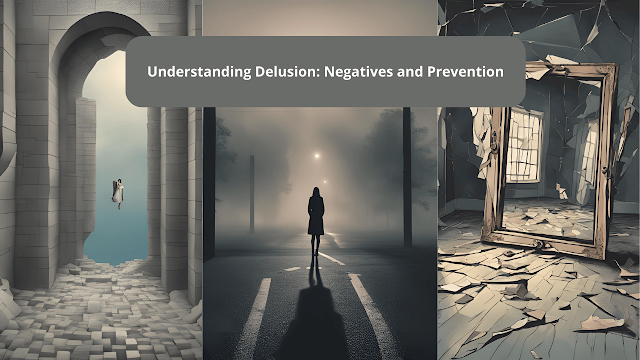Understanding Delusion: Negatives and Prevention
Delusion is a psychological phenomenon where an individual holds strong beliefs that contradict reality or common sense, often persisting despite evidence to the contrary. While delusions are typically associated with mental health disorders like schizophrenia or bipolar disorder, they can also appear in less severe forms in the general population. This article explores the negative impacts of delusions and provides practical strategies to prevent their occurrence.
The Negative Impacts of Delusions
Delusions can profoundly affect an individual's mental, emotional, and social well-being. Below are some of the key negative effects:
1. Mental Health Decline
Delusions are often accompanied by stress, anxiety, and confusion. When left untreated, they can exacerbate underlying mental health issues, leading to conditions like paranoia, depression, or obsessive-compulsive tendencies.
2. Strained Relationships
People experiencing delusions may have difficulty trusting others or perceiving social interactions accurately. This can lead to conflicts, isolation, and the breakdown of personal and professional relationships.
3. Impaired Decision-Making
Delusions can distort judgment and reasoning, resulting in poor decisions that may jeopardize an individual's safety, finances, or reputation.
4. Physical Health Risks
In extreme cases, delusions may lead individuals to neglect their physical health, such as avoiding medical treatment due to unfounded fears or engaging in harmful behaviors driven by distorted beliefs.
5. Reduced Quality of Life
Persistent delusions can interfere with daily functioning, limiting an individual's ability to work, study, or enjoy leisure activities.
Prevention Strategies for Delusions
While delusions can be challenging to address, adopting preventive measures can significantly reduce the risk of their development. Here are effective strategies:
1. Promote Mental Health Awareness
Educating individuals about mental health and the signs of delusional thinking is crucial. Awareness campaigns and workshops can help people recognize when they or someone they know may need professional help.
2. Encourage Open Communication
Fostering a supportive environment where individuals feel comfortable sharing their thoughts and concerns can help identify early warning signs of delusions. Open communication reduces isolation and provides a platform for intervention.
3. Seek Professional Support
Early intervention by mental health professionals can prevent delusions from escalating. Cognitive-behavioral therapy (CBT) is particularly effective in addressing distorted beliefs and promoting rational thinking.
4. Practice Stress Management
Stress is a significant trigger for delusions. Encourage practices like mindfulness, yoga, meditation, and regular physical activity to maintain mental equilibrium.
5. Promote Healthy Lifestyle Choices
A balanced diet, adequate sleep, and regular exercise contribute to overall mental health. Avoiding excessive consumption of alcohol or drugs also reduces the risk of delusional thinking.
6. Strengthen Social Connections
Building a strong support network of friends, family, and community can provide emotional stability and a reality check, reducing the likelihood of delusions taking root.
7. Challenge Irrational Beliefs
Encourage critical thinking and self-reflection to identify and challenge irrational beliefs. Reading, journaling, or engaging in discussions can help individuals differentiate between reality and misconceptions.
8. Leverage Technology for Support
Numerous apps and online platforms provide mental health resources, including guided meditations, therapy sessions, and forums for sharing experiences. Utilizing these tools can be a proactive step toward mental wellness.

.ico)

